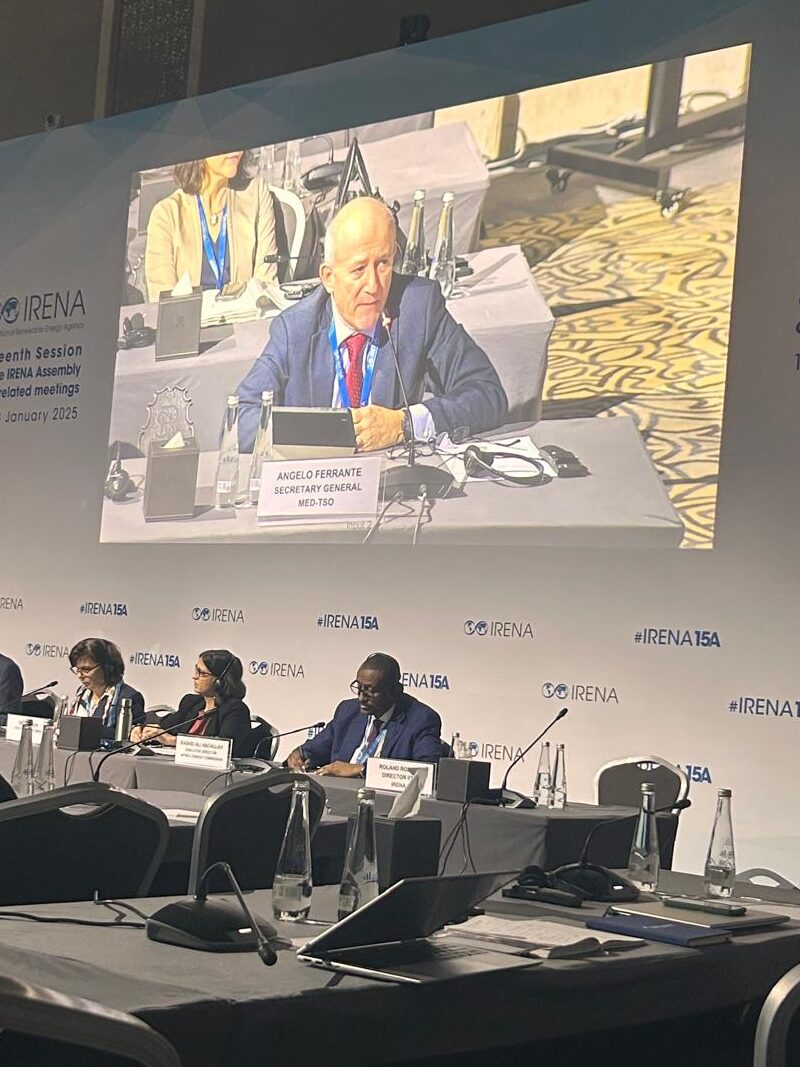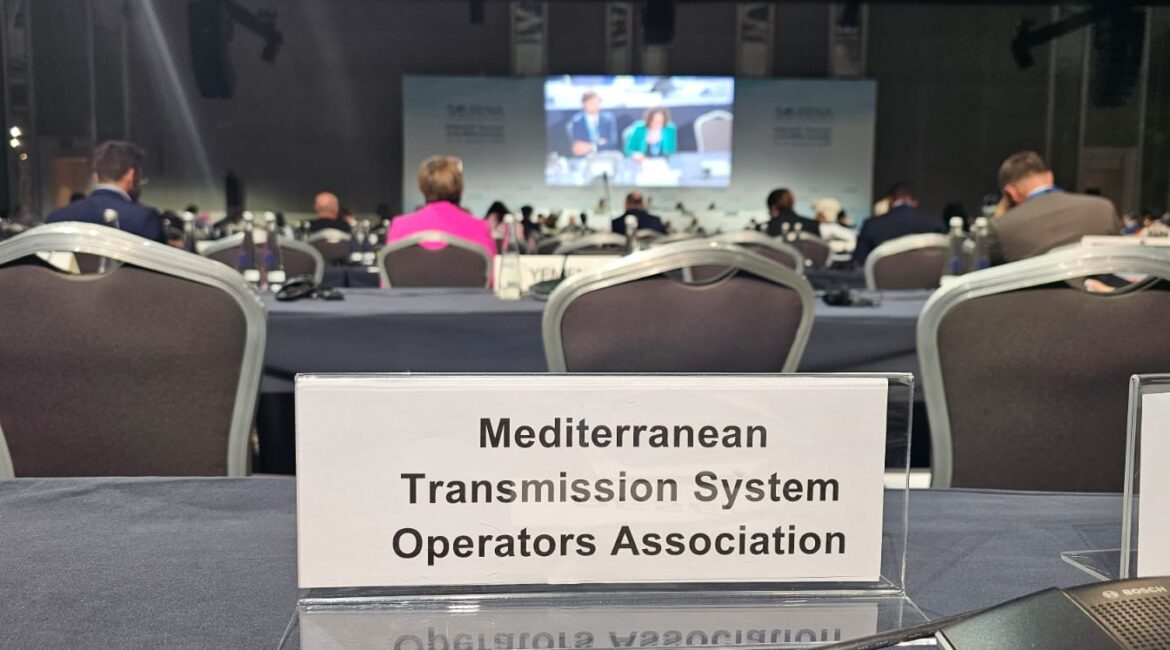Saturday, 11 January, Secretary-General Angelo Ferrante participated in two side events on the Pre-Assembly Day organised by IRENA, the International Renewable Energy Agency, before its 15th Assembly in Abu Dhabi.
During the event “Key Enablers For The Energy Transition: Grid and Storage”, Mr Ferrante addressed how to accelerate the grid expansion in the MENA Region and the role that anticipatory investments should play.
He pointed out that the successful expansion and decarbonisation of the electricity grid necessitates a coordinated effort involving TSOs, regulators, policymakers, and investors and how anticipatory investments are essential to align grid expansion with long-term policy goals. He underlined that Regulators have a crucial role to play in this transition as they must review and amend regulatory frameworks to consider wider societal benefits beyond just economic efficiency, encouraging a more proactive role of international financial institutions (IFIs) and development finance institutions (DFIs) is crucial for mobilising the necessary capital.
The second side-event dealt with “Energy Transitions across the Mediterranean: Enabling Infrastructure for a Sustainable Future”. Talking about how realistic the plans and visions for enabling infrastructures in the region are, the SG stated that regional integration and establishing a Mediterranean Electricity Market are key measures to promote energy transition. And this will be possible only through regional cooperation and targeted financial tools.
He stressed that the benefits of integration are often not fully appreciated, with countries frequently prioritising national solutions over pooling resources and flexibility tools and how this approach often leads to failure or delays in decarbonisation plans. Indeed, he underlined that while many projects assessed in Med-TSO analyses demonstrate significant commercial viability, they face substantial financial gaps due to a lack of a comprehensive vision and the prevalence of non-harmonized national policies.


